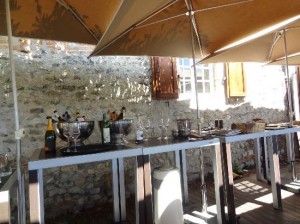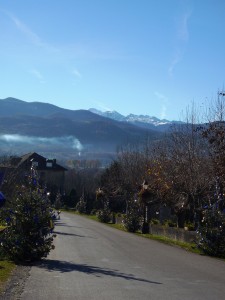
Retirement ‘paysan’ style in South West France
Many people dream of retiring to France to enjoy a better quality of life and climate in their later years. If this is your plan, probably the first things to consider (dull though they maybe) are the various financial and legal implications of your move including how to fund your retirement, which retirement and inheritance rules are applicable and your tax liability. Once all of this has been dealt with, you can concentrate on the more interesting things such as finding the perfect place to live, which is where I come in…but back to the basics first:
In France you may retire from the age of 62 as long as you have been in employment for 42 years, although people generally retire at 67. Whilst you can work up to the age of 70 most don’t chose to do this, and in some professions it’s even possible to retire at 50/55 (people working in public transport have this option). Women are also entitled to retire two years earlier for every child they have.
For EU citizens the process of retiring to France is relatively easy because of all the reciprocity treaties covering areas such as healthcare and taxes but it is more complicated for citizens from Australia, South Africa and the US. If you are a US citizen, you will need to communicate with the US Embassy in Paris to make sure you receive the benefits to which you are entitled. Many Australian and South African clients have a UK passport which makes the process simpler but, otherwise it is worth taking advice. Many of my clients from these countries do not spend the whole year in France and hence get around the regulations this way.
As it stands, EU citizens who have retired to France are entitled to vote and participate in local elections. If you plan to spend your retirement in France you must pay local taxes, even if your income comes from another nation. Retirees in France must be covered by a health programme (comprehensive private medical insurance etc) but retirees also qualify for daily benefits and perks, such as discounted or free entrance to museums and attractions, not having to pay TV tax and being able to use public transport for a reduced fee.
Most people moving to France have a legal will in place in their own country. However as the law stands at the moment, this may not be applicable because under current agreements, the law of the country where your house is situated governs the inheritance laws, while the law of the country of your final residence governs all of your other assets (investments etc). Thus, if you stay living in the UK, your English will would govern your English home and your other assets, while if you move to France permanently, your house in France and your personal assets are governed by French law.
There are however new rules coming into force in August 2015, the intention of which are to ensure that a person with assets in another jurisdiction will be able to apply the inheritance rules of his or her country of nationality to the assets in the other jurisdiction so current laws will no longer apply but it is certainly worth taking legal advice on the matter for inheritance tax purposes.
One last point on financial issues; there is in France the much talked-about wealth tax although this is only ever going to be applicable to a very few French property buyers. Where the net value of the estate (there are allowances such as certain debts, certain professional assets) exceeds 1.3 Million Euros, then an annual tax is applied on the total value beyond the first 800,000 Euros.
And just a general but important point on retiring to France; it will be so much easier if you can at least speak a bit of French and a much more rewarding and enjoyable experience. The more of the language you know the more easily you’ll be able to interact with your new neighbours and other residents..
Retiring to France I would suggest is probably one of the more sensible decisions you will make on many levels but it is important to take advice from legal, financial and property professionals to ensure you can really relax and make the most of your new life in France (and please note I am neither a legal or financial expert and rules change all the time so this blog is for guidance only but I would be happy to put you in touch with relevant advisors.)
Like this:
Like Loading...









You must be logged in to post a comment.